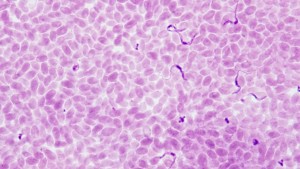
Trypanosoma evansi in Camels: Understanding the Threat of Surra
Camel herding is an essential part of life for many communities, providing transportation, milk, Camel racing and meat. However, camels, like all livestock, are susceptible to a variety of diseases, one of the most significant being Trypanosoma evansi infection, also known as Surra. This parasitic disease poses a substantial threat to camel populations, especially in regions of Africa, Asia, and the Middle East. It is transmitted mainly by biting flies, such as Tabanus and Stomoxys, which act as mechanical vectors. Unlike other trypanosomes that rely on specific hosts like the tsetse fly for transmission, T. evansi has a wider range of potential hosts, making it a more adaptable and dangerous pathogen. In camels, Surra is often chronic and can lead to serious economic losses if left untreated. The parasite enters the camel’s bloodstream via the bite of an infected fly. Once inside the host, it multiplies in the blood and tissues, causing anemia, fever, and a variety of other symptoms. Trypanosoma evansi is particularly adept at evading the host's immune response by altering its surface glycoproteins, making it difficult for the animal’s immune system to mount an effective defense. The wide range of fly species capable of transmitting the parasite, along with its ability to infect multiple mammal species, contributes to the extensive geographical spread of the disease. In camels, Trypanosoma evansi infections can be either acute or chronic. Symptoms may vary depending on the strain of the parasite, the level of infection, and the host’s overall health. Key clinical signs include, Fever, Anemia, Weight Loss, Swollen Lymph Nodes, Edema, Nervous Signs like uncoordinated movements, paralysis, and even death.
Diagnosing Surra can be challenging, especially in its early stages, when symptoms may be non-specific. The most common method is Microscopic Examination, Wet Mount preparation and Microcapillary method.
Given the high economic value of camels and the potential for losses due to Surra, prevention is key control measures include Fly Control, Regular Screening of blood and Quarantine.
